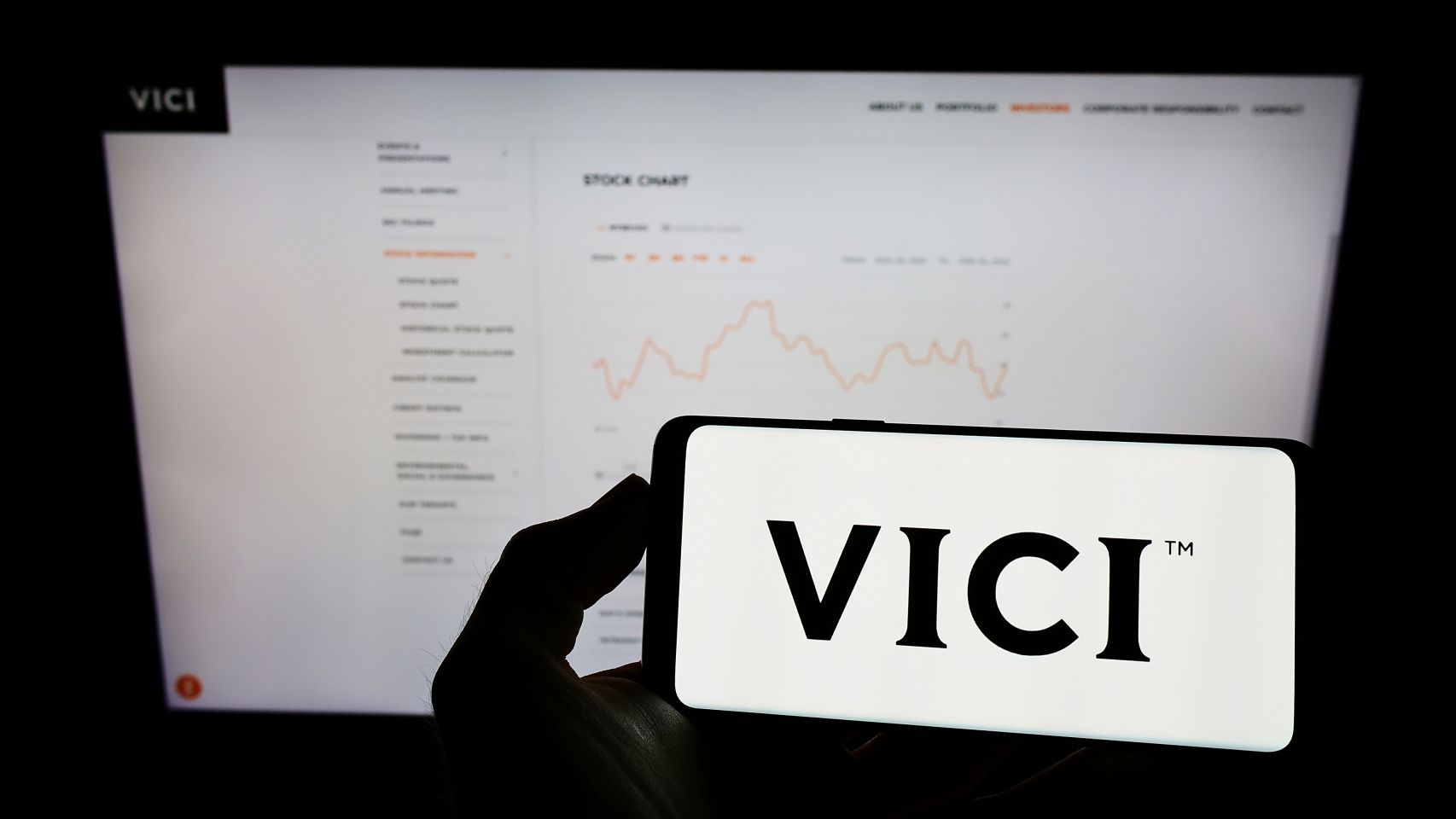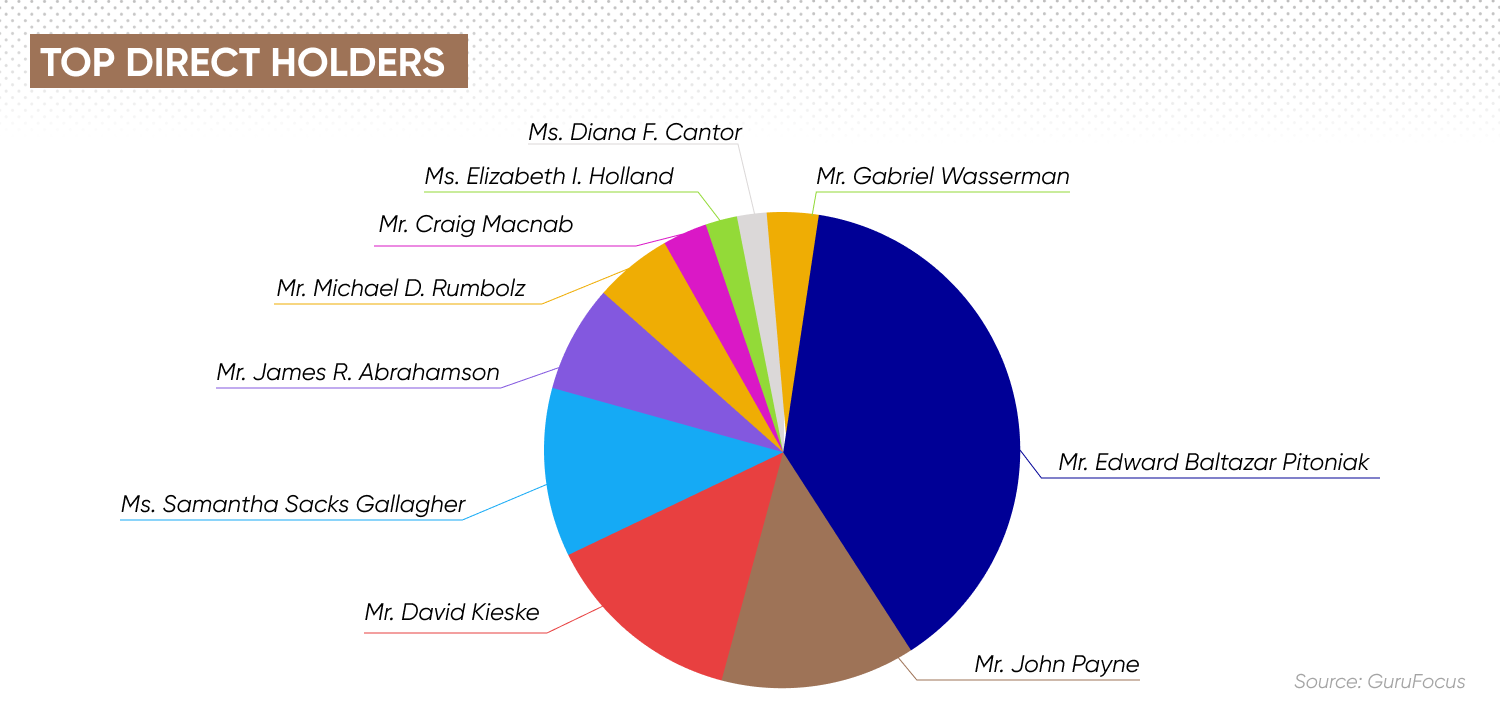VICI Properties shareholders: Who owns the most VICI stock?
Read on for an in-depth look at VICI Properties largest shareholders
Despite the latest macroeconomic headwinds, the value of VICI Properties (VICI) stock has increased by 12.6% so far in 2022. The real estate investment trust (REIT) is offering a 4.6% dividend yield as of 9 December.
Who are the largest VICI Properties shareholders? In this article, we provide further details about the ownership structure and history of this real estate company.
What is VICI Properties (VICI)?
VICI Properties is a REIT that owns and operates gaming and hospitality properties including casinos, convention centres and hotels. The company emerged as a spin-off of Caesars Entertainment Operating Company (CEOC) during the latter company’s bankruptcy proceedings.
As of 9 December, the trust owned the following properties:
-
43 gaming establishments
-
4 championship golf course
-
58,700 hotel rooms
-
More than 450 restaurants, bars, and other similar venues
-
Over 500 retail outlets
-
34 acres of undeveloped properties in Las Vegas
VICI generates revenues by leasing its properties to third parties. Some of its flagship casinos and venues include the Caesars Palace and renowned hotels in Las Vegas such as the Excalibur, Luxor and The Mirage.
During the first nine months of 2022, VICI generated total revenues of $1.83bn and a net income of $513.58m. Since this company is a REIT, the majority of its earnings are distributed to stockholders in the form of dividends every year. By the end of 2021, the company employed 152 workers to run its operations.
VICI Properties went public in February 2018 when its shares were listed on the New York Stock Exchange (NYSE) under the ticker symbol ‘VICI’ and offered to the public at an initial price of $20 a share.

Since the company went public, the price of VICI Properties stock has increased by 107.1%. During that same period, the value of the S&P 500 (US500) and US Tech 100 (US100) has risen by 40.9% and 69.3% respectively.
Who owns the most shares of VICI Properties?
According to VICI Properties’ latest annual report, as of 22 January 2022, 120 entities were registered as VICI Properties shareholders including brokerage firms and institutional investors that may hold the shares on behalf of their customers.
As per GuruFocus, as of 5 December, 0.2% of VICI stock was owned by insiders and 97.2% of its common shares were held by institutions, including brokerage firms, hedge funds, pension funds and asset management companies.
Data from MarketScreener indicates that The Vanguard Group, The Capital Group and State Street are the top three shareholders of VICI Properties. These are brokerage and asset management firms that either hold the stock on behalf of their customers or by some of the mutual funds and exchange-traded funds (ETFs) they manage.
VICI Properties’ shares have voting rights, meaning that all VICI Properties shareholders have a say in the company’s affairs in correspondence with the number of shares they own.
Individuals who buy VICI stock through a broker can appoint them as a proxy, meaning that the broker can vote on their behalf. However, they can also opt to cast a vote on the company’s key decisions at VICI shareholders meetings.
List of VICI Properties biggest shareholders among institutions
Capital Research & Management – 17.2%
Via its three subsidiaries – International Investors, Global Investors and World Investors – The Capital Group is listed as the largest institutional shareholder of VICI Properties.
The asset management firm oversaw nearly $2trn in assets for its customers as of June 2022. Its ample portfolio of investment solutions and products includes mutual funds and ETFs that seek to generate fixed income for investors. Those funds typically incorporate shares of REITs as these entities distribute dividends to their stockholders periodically.
The Vanguard Group – 14.2%
It’s one of America’s largest asset management companies. As of 30 September, the firm managed over $8trn in assets for its customers.
Vanguard offers access to the financial markets via various types of investment vehicles such as ETFs and mutual funds. Some of those funds provide exposure to the real estate market via the purchase of a selected number of REITs based on the strategy and methodology followed by each. This explains why The Vanguard Group is listed among VICI Properties major shareholders.
Additionally, Vanguard offers a self-directed trading solution that allows customers to buy shares of this REIT directly. In those cases, the firm will also be listed as the owner of the stock despite only acting as custodian.
State Street – 5.7%
One of the companies that popularised the use of passively-managed investment products such as ETFs among American investors. By the end of the 2021 fiscal year, the company had $4.1trn in assets under management.
The firm invests in REITs as part of the strategy of some of its investment funds such as the State Street Real Estate Securities V.I.S – Class 1 mutual fund. This is the reason why State Street is listed among the major shareholders of VICI Properties.
VICI Properties major shareholders among insiders
The following individuals are considered VICI Properties biggest shareholders among the company’s insiders, according to data from GuruFocus. This list includes the firm’s top executives and members of the Board of Directors.
These shares have been granted to insiders by the company via stock options as part of their compensation package.
Edward B. Pitoniak – 692,524 shares
The CEO of VICI Properties. Before joining the company, Pitoniak served as vice chairman of Realterm, a private equity firm specialising in the real estate market. He has also occupied various executive roles at companies such as InnVest, another REIT, and as CEO of bcIMC Hospitality Group, a company that managed several hospitality properties.
John Payne – 244,799 shares
The president and chief operating officer of VICI Properties. Payne is in charge of overseeing the day-to-day operations of the company including keeping track of the performance and shape of the properties owned by the REIT.
He previously served as CEO of CEOC – the original parent company of VICI – and as a top executive for several companies in the gaming and hospitality space such as Harrah’s New Orleans.
David Kieske – 223,926 shares
The chief financial officer of VICI Properties. Prior to joining the REIT as a C-level officer, Kieske served as managing director for the Real Estate & Lodging Investment Banking Group. He also worked for both Bank of America and Citigroup’s real estate investment banking units. He holds a Master’s in Business Administration from the University of California.
While it may be useful to know who owns the most shares of VICI Properties, it shouldn’t be used as a substitute for your own research. Always conduct your own due diligence, looking at the latest stock news, a wide range of analyst commentary, technical and fundamental analysis.
Remember, past performance does not guarantee future returns. And never trade with money you cannot afford to lose.
FAQs
How many VICI Properties shares are there?
According to data provided by VICI Properties in its latest quarterly report, as of 26 October this year, there were 963,097,848 common shares of the company in circulation.
How many shareholders does VICI Properties have?
According to VICI Properties’ latest annual report, as of 22 January, 120 entities were registered as VICI Properties shareholders, including brokerage firms and institutional investors that may hold the shares on behalf of their customers.
Who owns VICI Properties company?
According to data from GuruFocus, 97.2% of VICI’s common shares were in the hands of institutional investors as of 9 December. Meanwhile, the largest individual non-institutional stockholder by this same date was Edward Pitoniak, who owned a total of 692,542 shares as of 28 February.